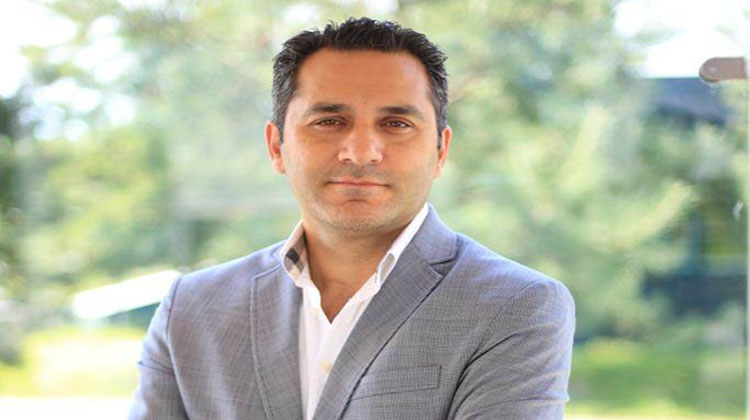Transformation Plans Towards a Smoke-Free Future Ali N. Karaman, Managing Director of Philip Morris Egypt & Levant: “To date, PMI have invested more than $9 billion in research, development, commercialization, and manufacturing capabilities for smoke-free products.” By 2025, we aim to generate at least 50% of net revenues from smoke-free products. We estimate that 19 million adult smokers worldwide have already switched to our leading heated tobacco smoke-free product. “At PMI, our ambition is to replace cigarettes with smoke free alternatives such as heated tobacco, e-cigarettes and snus, for adult smokers who would otherwise continue smoking cigarettes. Scientifically substantiated smoke free products are a much better alternative since they can significantly reduce the levels of harmful chemicals compared to cigarettes, however, they are not risk-free and contain nicotine which is addictive. Of course, the best decision is always to quit smoking and nicotine use altogether,” said Ali N. Karaman, Managing Director of Philip Morris Egypt & Levant, during a ‘Financial Times Live’ virtual event under the name of ‘Reshaping Industries Through Self-Disruption’. The event was focused on how companies create robust structures and frameworks to transform their organizations and constituted of 2 panels and a fireside chat. Various speakers including lead executives from Anghami, Fifth Advisory Services, Microsoft, Philip Morris, Talabat, Toters & ValU discussed how their companies are proactively reshaping and disrupting their organizations to meet the evolving expectations of customers, investors and stakeholders. “To date, PMI have invested more than $9 billion USD in research, development, commercialization, and manufacturing capabilities for smoke-free products. More than 980 R&D positions, including scientists, technicians, and engineers work to continuously innovate and enhance our smoke-free portfolio,” stated Karaman. Karaman highlighted that, in 2021, 99% of PMI’s R&D expenditure was dedicated to smoke-free products, as well as 73% of its commercial expenditure. “Our vision of a smoke-free future—a world where cigarettes are replaced by better alternatives that do not involve burning and smoke—is one that we are well on our way to delivering,” Karaman continued. “By 2025, PMI aims to be a majority smoke-free business—generating at least 50% of net revenues from these products. This figure already stands at 30.4% and confirms our serious commitment to transformation.” “As of September 2022, we estimate that 19.5 million adult smokers worldwide (excluding Ukraine and Russia) have already switched to our leading heated tobacco smoke-free products. Many others have switched to a variety of smoke-free alternatives that, like regulated e-cigarettes, are better than continued smoking. This is a profound public health achievement and that can be further accelerated,” added Karaman. “Science has changed our company and is transforming our industry. Today, PMI is a science and technology-minded company developing science-backed smoke-free products, which, while not risk-free, are significantly better alternatives to cigarettes for those who would otherwise continue smoking. Throughout the journey, any switching to a better alternative, brings a positive impact on the general population health,” said Karaman. Today, advancement in scientific research enables PMI to confidently link smoking-related diseases to the process of burning and not nicotine, which is addictive and not risk-free, but not the primary cause of smoking-related diseases. The company’s transformation aims to replace combustible products and eliminate the associated risk of smoking for adult smokers who do not wish to quit. Karaman stressed that this transformation, and hence PMI’s product portfolio is backed by science and that the scientific studies include everything from aerosol chemistry and toxicology to non-clinical and clinical trials. “As a company with heritage stretching back around 175-years, undoubtedly, it is as bold a move as any company can make to disrupt its business model and make a core product obsolete. While never starting or quitting smoking altogether are best, harm reduction strategies to reduce smoking are being increasingly welcomed, not just by adult smokers, but an increasing number of general public and health authorities around the world,” added Karaman. “As with many other industries going through fundamental change, the journey towards a smoke-free future is far from over. But the speed of change is increasing all the time. With wider societal support for smoke-free alternatives, the move away from cigarettes can be achieved faster and to the benefit of adult smokers and wider public health everywhere,” Karaman concluded.








